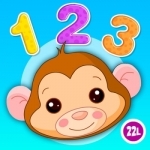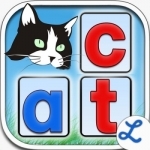
Lingokids - English for Kids
Education and Entertainment
App
Lingokids is the best English learning app for kids aged 2-8. Now featuring content from Oxford...

Futaba Classroom Games for Kids
Education and Games
App
Turn your iPad into a small Smart table with for up to four players at once. * Featured on...

Build With Grandpa
Education and Games
App
Demolish an old building with a wrecking ball, clear the lot with a bulldozer - then design, build,...

Green Screen by Do Ink
Education and Photo & Video
App
The #1 Green Screen app for the iPad in Education, now available for the iPhone too! Green Screen by...

Space by Tinybop
Education and Reference
App
Boldly go where no kid has gone before in 3, 2, 1…. Liftoff! Travel into space to visit 8...

24/7 Coach Football
Sports and Education
App
24/7 Coach Football: The Professional Coaching App. Now being used across Europe,...

Thinkrolls
Education and Games
App
Set your child's mind in motion! Thinkrolls are the 26 smart characters in this award-winning app...

Sweet Home Stories (Full)
Education and Games
App
Wake up and get ready! There are lots of things to do in Sweet Home Stories! A fun and safe...

Baby games for 2 -4 year olds·
Education and Games
App
***** Parents‘ Choice Awards’ winner ***** Developed by an award-winning education studios,...

Montessori Crosswords - Fun Phonics Game for Kids
Education and Games
App
Based on the proven Montessori learning method, Montessori Crosswords helps kids develop their...